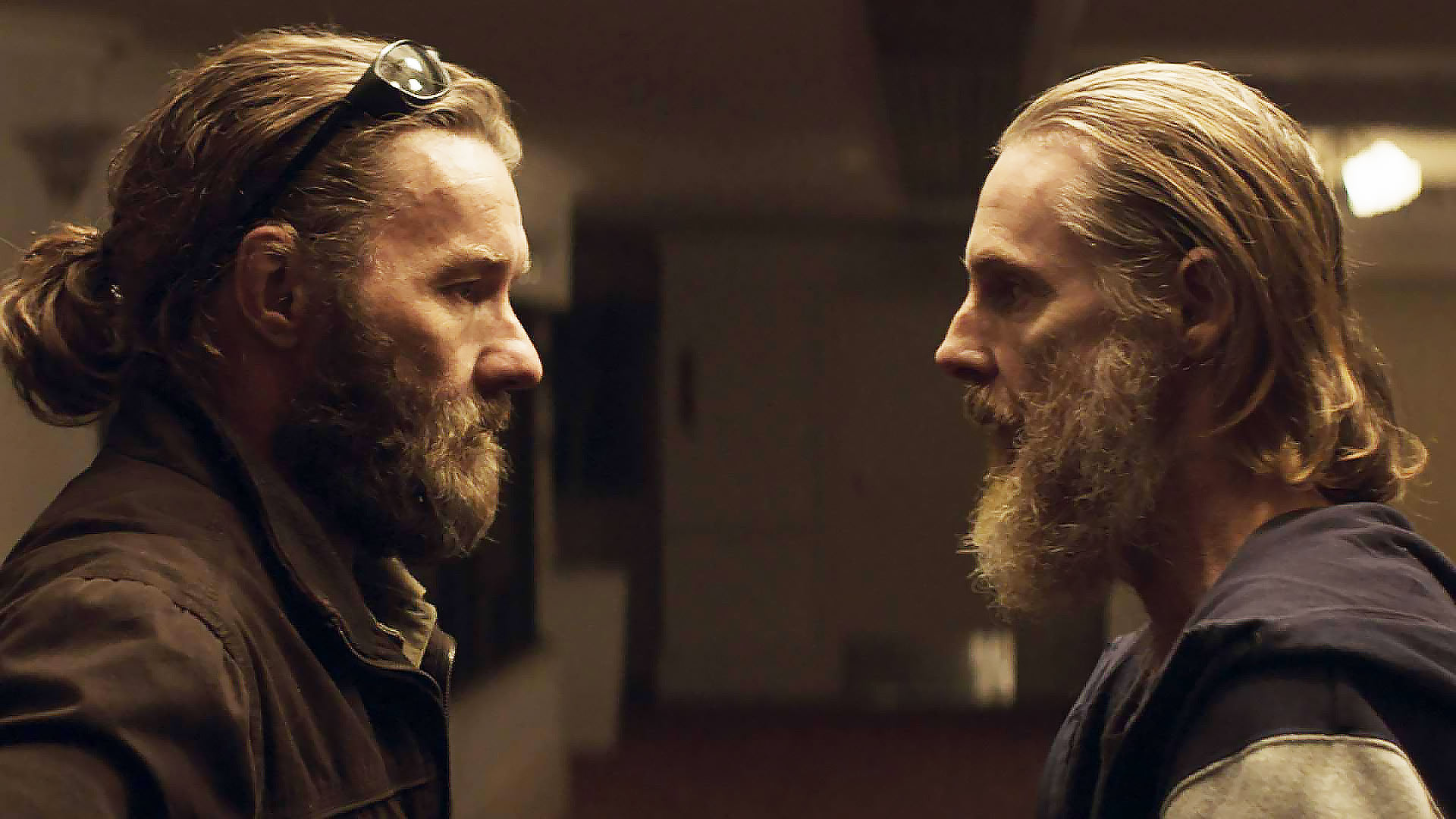The Stranger continues a long line of bleak as hell Australian crime dramas

Australia is the world’s leading exporter of none-more-grim crime fare—the latest example being the superb The Stranger, which blurs the line between horror movie and police procedural.
On a long-haul bus trip speeding through the benighted countryside, ex-con Henry (Sean Harris) makes small talk with a stranger named Paul (Steve Mouzakis). It’s evident they both hail from the criminal milieu, the fringes of society. Henry needs work. Paul knows a guy. Stark shadows encircle the pair; Henry will soon find himself encircled by machinations far beyond his ken.
The Stranger gives up its secrets slowly and obliquely, and we need to reveal a few in order to talk about it with any authority. Paul’s guy, Mark (Joel Edgerton once again proving he’s one of the finest Australian actors) is an undercover cop. So is everyone in his circle. They’ve got eyes on Henry for a child murder cold case and have baited a trap for him, creating a fake, shadowy criminal organisation that offers work, money, companionship and, crucially, a way out for a man who has committed the most grievous of crimes.
The aim is confession, but in order to elicit one Mark must win Henry’s trust. The cop, who it seems has his own history of violence and now shares custody of his son with an ex who won’t speak to him, begins to see uncomfortable parallels in Henry.
Australia is the world’s leading exporter of none-more-grim crime fare: think Snowtown, Chopper, Nitram, Animal Kingdom, Ghosts… of the Civil Dead, Stir, and Romper Stomper. Actor-turned-filmmaker Thomas M. Wright seems to have interpreted extreme grimness as a personal challenge. Having already given us a stunning portrait of destructive male dynamics in Acute Misfortune, his acclaimed 2019 cinematic portrait of the late artist Adam Cullen, he now takes the notorious Daniel Morcombe murder case as his inspiration, using it as the basis for a film of nigh-unparalleled tension.
The threat of violence is ever-present; we know we’re in the presence of men capable of unspeakable things, and that extends to the small army of covert cops quietly setting their snares for Henry. But more than that is the threat of what you might term forbidden knowledge; watching The Stranger is to experience the disquieting feeling that at any moment you are going to learn some horrible truth that will alter your worldview forever. In that sense, Wright’s film is more horror movie than police procedural.
Formally, The Stranger is a truly impressive work, with Wright and his cinematographer Sam Chiplin transforming this world of cheap motel rooms, lonely country roads, and deserted underpasses into an alien and oppressive realm where buzzing fluorescent lights barely keep the shadows at bay. Every surface seems to have a nicotine patina; it’s an ugly world populated by ugly people. Mark and his undercover comrades do such a good job you wonder how much is acting. It’s only the singularly monstrous nature of Henry’s crime that marks him out as a creature of the lowest sort, his brand of evil making the transgressions we see elsewhere seem almost benign.
The Stranger brings to mind the old Nietzsche quote about fighting monsters and gazing into the abyss, and perhaps Orwell’s observation that we are safe only because rough men stand ready to do violence on our behalf. This is a study of such men and the price paid to do such work, pulling not one single punch. It’s a fine film, perhaps even better than the superb Acute Misfortune. It’s also an exercise in unrelenting bleakness, and needs to be approached carefully.


















